We occasionally link to goods offered by vendors to help the reader find relevant products. Some of these may be affiliate based, meaning we earn small commissions (at no additional cost to you) if items are purchased. Here is more about what we do.
You just came across an amazing new recipe – but it features some ingredients you’ve never heard of before, and cooking techniques you’ve never tried in your kitchen at home.

Should you just… find something easier to make instead?
Recipes that call for unfamiliar ingredients or cooking techniques can seem daunting to both experienced chefs and rookie home cooks, but these 10 tips will help you approach a new recipe the right way.
As anyone who has tried to expand their kitchen repertoire knows, new culinary concoctions can leave you feeling hassled or stressed in the kitchen as you juggle unfamiliar techniques and routines in uncharted territory.
However, there are easy ways to make this process fun and enjoyable!
From smart strategizing to fixing disasters, read on for our top tips that will make cooking with new ingredients or methods and mastering unfamiliar recipes a breeze!
10 Tips for Cooking Unfamiliar Recipes
1. Clean Your Kitchen
Cleaning your kitchen, and keeping it that way, before trying a new recipe can mean the difference between a frenzied, chaotic evening and a calm, relaxed cooking experience.
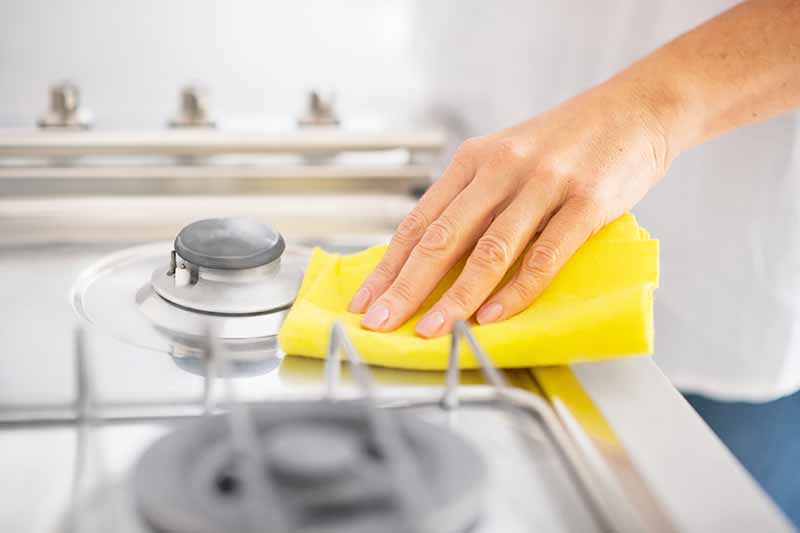
With a clean work station, as well as tools and appliances maintained with respect, it will be easier for you to move smoothly as you tackle the different steps and stages of your new recipe.
Plus, with less clutter in the kitchen, you won’t lose something you’ve set down, or forget to add an ingredient that’s hiding on the counter behind a pile of other stuff!
Before getting started, give your workspace a quick audit, and prioritize any quick cleaning updates – try any of our 15-minute cleaning hacks to easily spruce up your space.
This could be as simple as wiping down your countertops, or reorganizing a shelf or two of your refrigerator if you’re hoping to make a recipe with a long list of fresh ingredients that you still need to buy and store.
2. Review and Copy the Recipe
One of the challenges of trying new recipes is that, no matter how closely you think you read them the first time, it’s all too easy to miss something crucial!
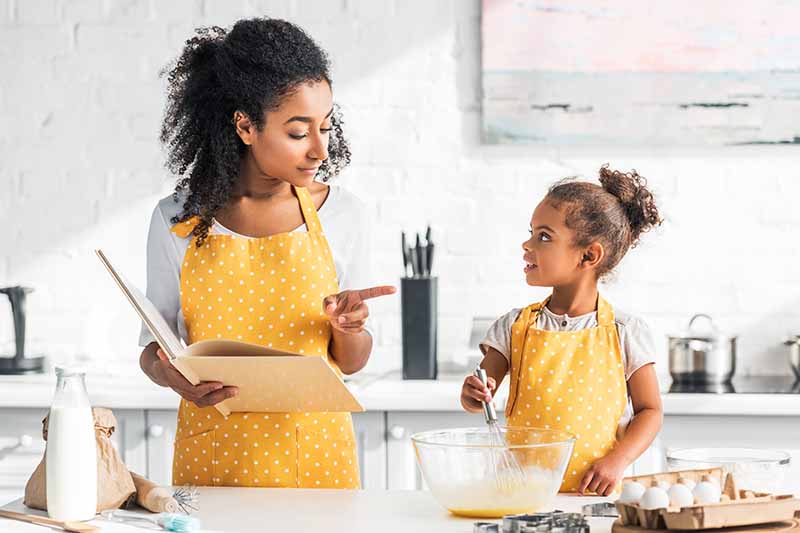
We have an easy technique for you to avoid common cooking mistakes, like forgetting to preheat the oven, or discovering midway through that you need a piece of kitchen equipment you don’t own:
Read the entire recipe once, then write it out somewhere else!
When you have to write out every word, either by putting pen to paper or typing it out on your phone or computer, there’s no chance you’ll be unpleasantly surprised by an unexpected technique, ingredient, or kitchen tool.
Copying it out provides you with an excellent opportunity to start thinking about your time, and your space, as you go. And don’t use copy/paste shortcuts, please!
An additional strategy to try as part of this process is to also read it out loud from start to finish – verbalizing every step may be more effective for you than silently reading it.
3. Research
Looking up photographs or videos of the techniques you’ll be attempting can help you achieve perfect results.
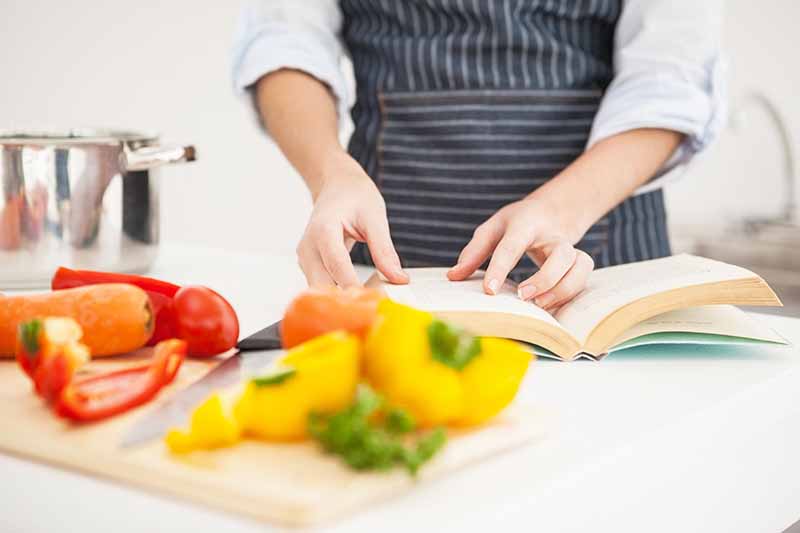
This is also the best time to research any unfamiliar ingredients, and figure out if you need to head to a specialty food store, or order them online.
If you’ll be using more than one new cooking technique, it’s a good idea to save or print out images or detailed directions for each one to quickly access and reference when you’re completing that task.
Doing some research to find pictures of the completed dish online, or ones that are similar to it, is another good strategy. This provides the visual motivation you need to achieve a successful result in your own kitchen, and will give you creative ideas for how to plate, garnish, and serve it as well.
4. Plan Your Time
Writing out a general timetable for each step makes new recipes easy to follow.
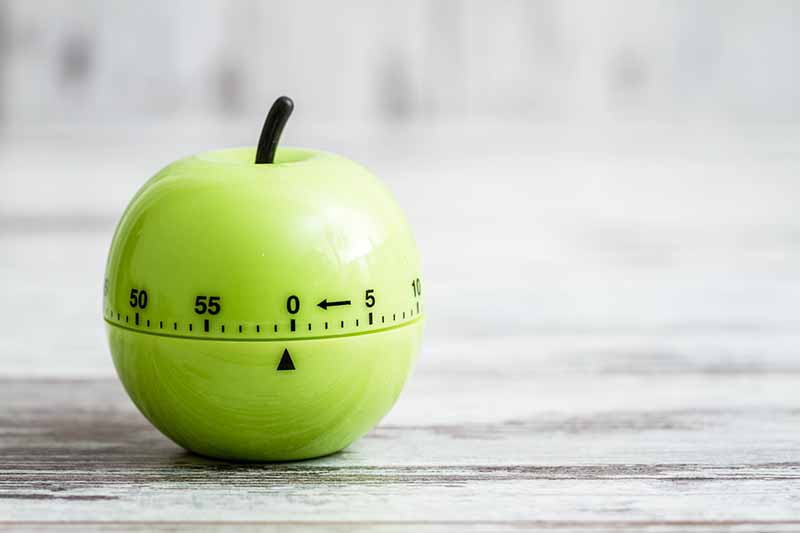
Most recipes provide – or they should provide! – estimates for prep, passive, cooking, and total time.
Don’t ignore these!
They will provide a basic structure that you can use to more intricately break down each step of the prep and cooking processes.
Planning your schedule in advance based on the time required helps to reduce the chances that you’ll cook or bake your food improperly, or that you’ll end up rushing things to the table in order to have dinner at a reasonable hour.
And this is particularly helpful when you are already balancing multiple responsibilities with a crazy-busy work or personal schedule! A dedicated kitchen timer will be your trusty companion, like this Jumbo Readout Digital Timer from Taylor, available at Sur La Table.
Taylor Jumbo Readout Digital Timer, available at Sur La Table
When you can just glance at the clock and then at your timetable to know what you’re meant to be doing, you’ll be able to get a new recipe to the table by dinnertime without stress.
5. Factor in a Break
Look, you know you deserve one.

As you make your timetable, identify when there may be passive time in the cooking process.
While something is gently simmering on the stove or baking in the oven, take advantage of this break from actively cooking or baking to focus on some personal time – or even some exercise time if you are filled with extra energy to burn.
During this time, you can catch up on other tasks that you may be behind on doing – whether that time is spent with family, cleaning, relaxing, or exercising.
6. Identify What’s Required for Each Step
As you are breaking down your new recipe step by step, make sure you also identify the tools you’ll need, and what location of the kitchen you need to be in, for each step of the process.
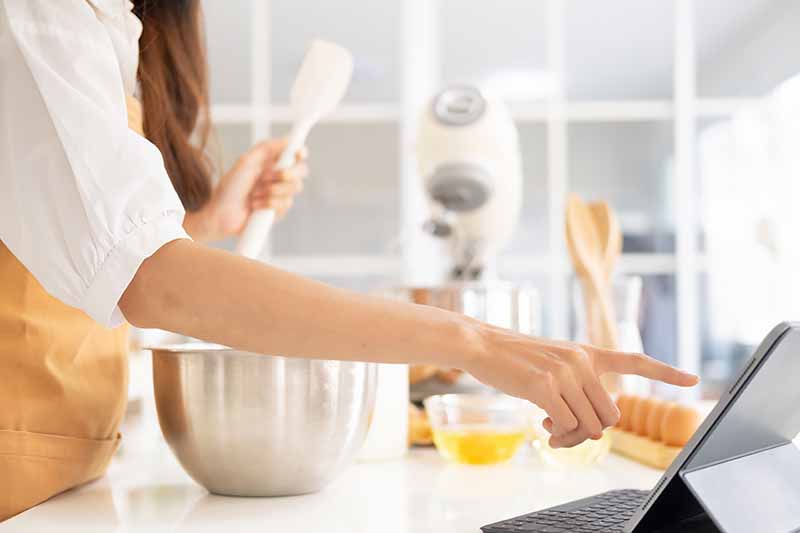
That way, you can plan ahead and make sure the tools and appliances you need for each step are within arm’s reach of where you’ll be doing a task.
7. Brainstorm a Backup
When you look at a new recipe, try to brainstorm a worst-case-scenario backup plan that will let you use part or all of the work you’ve done to build a new dish.
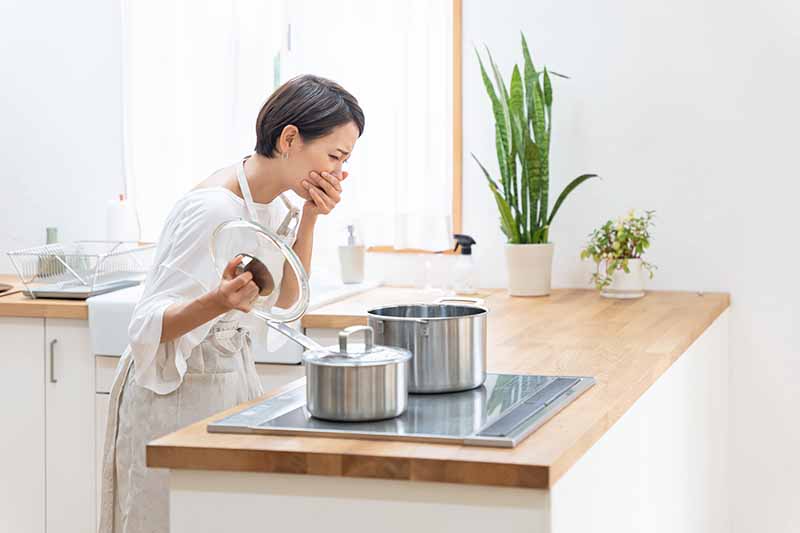
If your lasagna is too weird and watery, can it be transformed into some sort of rustic Italian stew?
If your popovers don’t puff, can you repurpose them as a dessert base with easy roasted blueberries and freshly whipped cream?
Do you know what to do if you made dinner waaaaaay too spicy?
If you have a backup plan that will let you deliver an enjoyably edible meal to the table no matter what, you’ll be able to work your way through even the most challenging new cooking or baking techniques with the security of a reliable safety net.
Soup in particular can be a great save to transform part or all of a failed experiment into a delicious dish, so think about getting out your stockpot if the original does not go well.
8. Prepare Your Mise en Place
Mise en place simply means “putting in place,” setting out all of your prepared ingredients before you begin the cooking or baking process or set any time-based processes in motion.
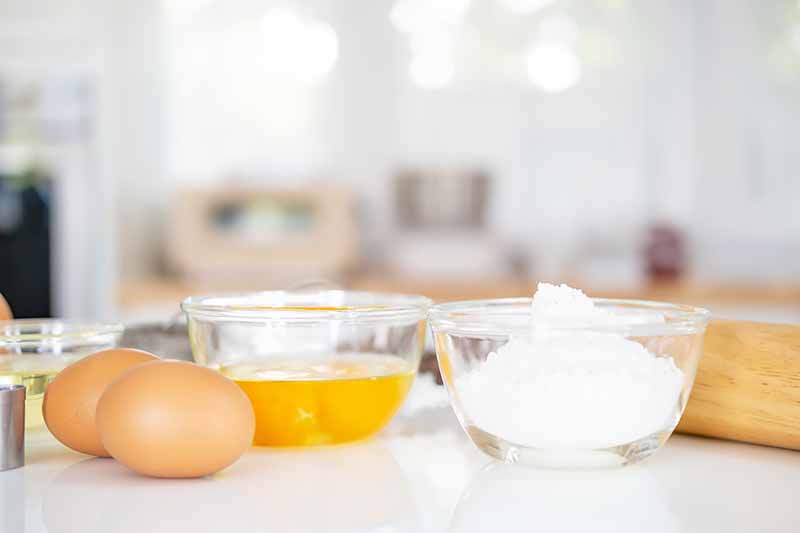
Wash, peel, chop, and measure everything before you get started.
Although it can save time to multitask by doing things like chopping one ingredient while another is simmering, when you’re working with new recipes it’s a lot easier to get all of your prep work out of the way first.
That way, as you’re cooking, you’ll be ready to simply grab the next ingredient and throw it effortlessly into the pan.
Once you feel the rhythm of a dish, you can figure out how to streamline it for efficiency. But if you’re working with an unfamiliar technique or ingredients, you need all the ease of cooking you can get.
So do your ingredient prep in advance!
9. Be Discreet
One of the most troubling aspects of trying out new recipes often has to do with meeting expectations.
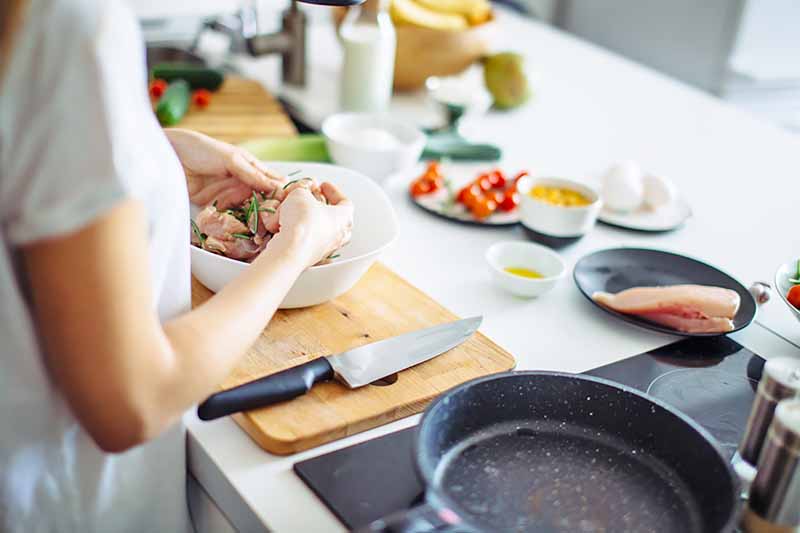
To reduce any tension surrounding this, you can choose to keep your new dish a surprise for your guests.
Your lucky dinnertime companions will be amazed by your ever-expanding culinary repertoire, but you won’t have to contend with meeting the expectation that your dish will be exactly what they may have expected to eat.
Realize that you can turn failure into success – and your family and friends will be none the wiser.
For example, did you make a grapefruit honey sorbet that didn’t set properly? No worries! It’s just time to pull out your backup plan.
This liquidy mess can be served and described as a “fruity soup” instead, and your guests won’t feel like they’re missing out if they weren’t promised sorbet ahead of time. Ladle the chilled liquid into bowls, top with mint sprigs, and serve proudly. Or call it a coulis and use it as a sauce with store bought pound cake or angel food cake.
Have everyone think you made the new dish correctly – even when you totally didn’t!
10. Invite Company
But if you prefer to have company in the kitchen, and don’t mind the vulnerability of sharing both successes and failures, cooking something unfamiliar is even more fun when you have someone to share your culinary adventure with.
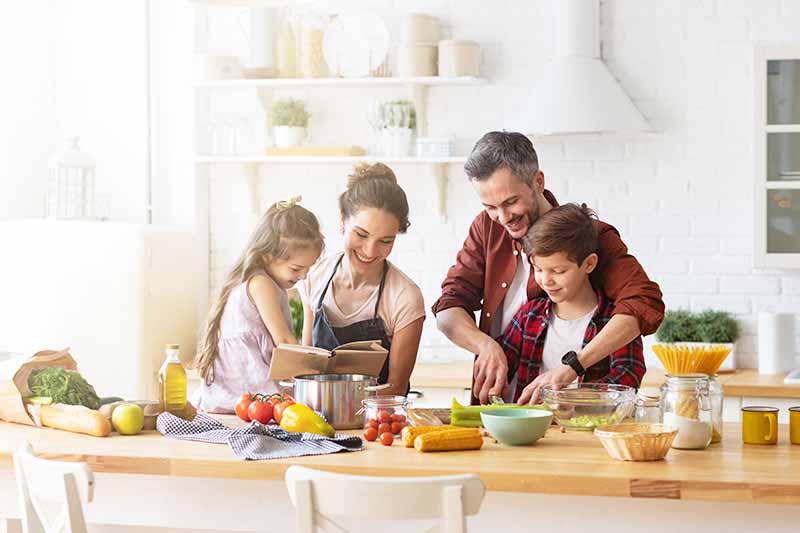
If you’ve never made a particular recipe before, try to find someone in your social circle who has some experience with the food, or who also likes to play and experiment in the kitchen, and invite them over to help you make and enjoy it.
A new recipe goes a lot more smoothly if you can learn the tricks and quirks of the techniques involved from somebody who knows them inside and out, and working on a project with a friend, partner, or family member is a great bonding experience.
If you have a friend who makes a lot of Italian desserts, for example, invite them over to help you work through making homemade tiramisu for the first time.
You’ll get some help from an expert, master a new technique, and you’ll both have a great time with a delicious dish to enjoy together when you’re finished.
Take a Risk and Have Some Fun
With a little bit of creative planning, you can eliminate both the tension of trying something new and the fear of cooking from scratch.
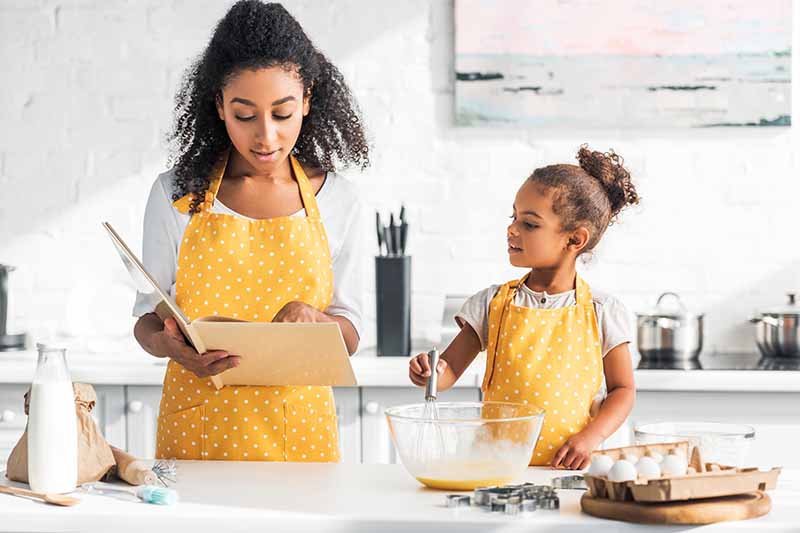
With these top 10 tips, you will be able to coast easily to the finish line of mastering a delicious dish that’s outside of your usual comfort zone.
Do you have any advice for tackling a new cooking project at home? Let’s hear it all! Leave a comment below when you’re free to chat.
We so appreciate and admire your brazen culinary prowess! If you want to continue learning in the kitchen, we can help you every step of the way with more of our helpful how-to guides. Bring your tools and an empty stomach, and read these tutorials next:
- 5 Steps to Create the Perfect Meat and Cheese Board
- How to Make Squash Puree
- How to Make Your Own Cottage Cheese
© Ask the Experts, LLC. ALL RIGHTS RESERVED. See our TOS for more details. Uncredited photos: Shutterstock. Originally published on September 6, 2014. Product photos via Sur La Table. Last updated on April 10, 2023.
About Nikki Cervone
Nikki Cervone is an ACS Certified Cheese Professional and cheesemonger living in Pittsburgh. Nikki holds an AAS in baking/pastry from Westmoreland County Community College, a BA in Communications from Duquesne University, and an MLA in Gastronomy from Boston University. When she's not nibbling on her favorite cheeses or testing a batch of cupcakes, Nikki enjoys a healthy dose of yoga, wine, hiking, singing in the shower, and chocolate. Lots of chocolate.


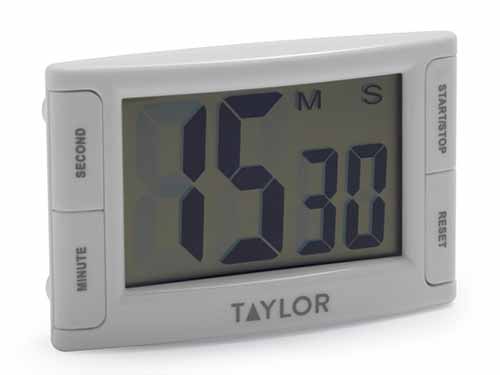

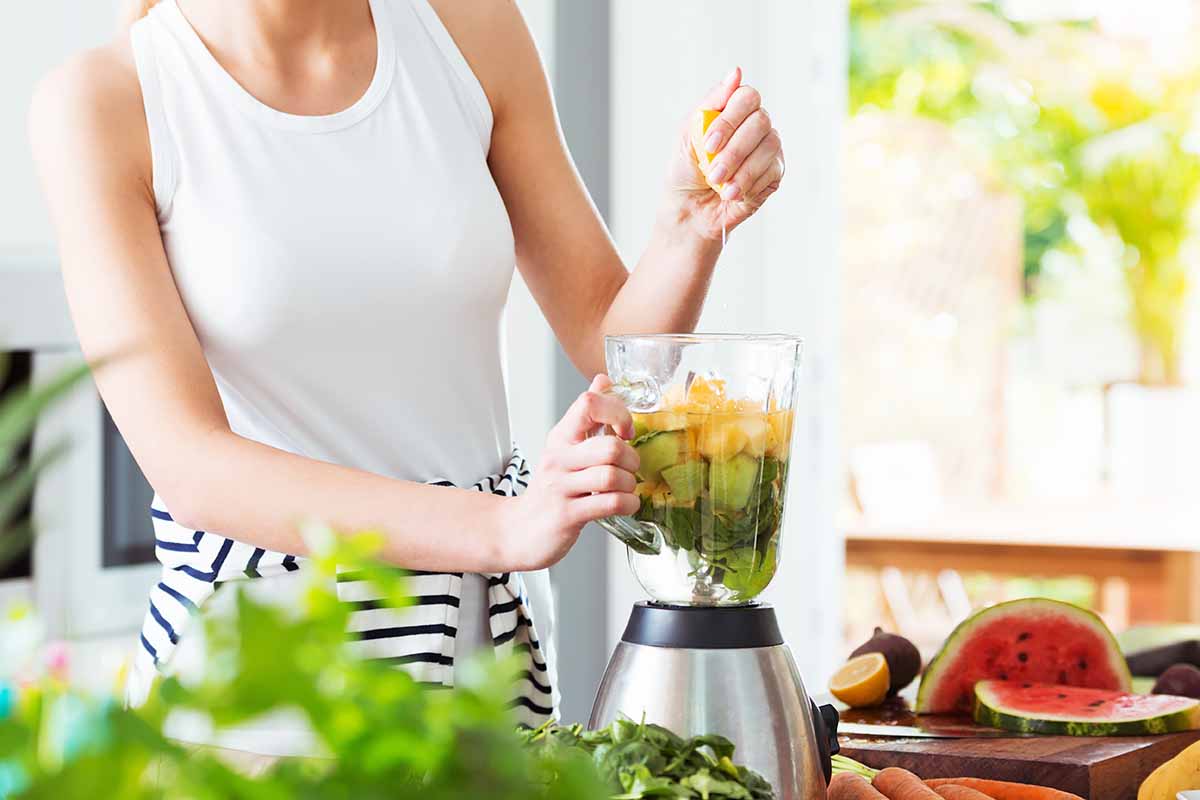
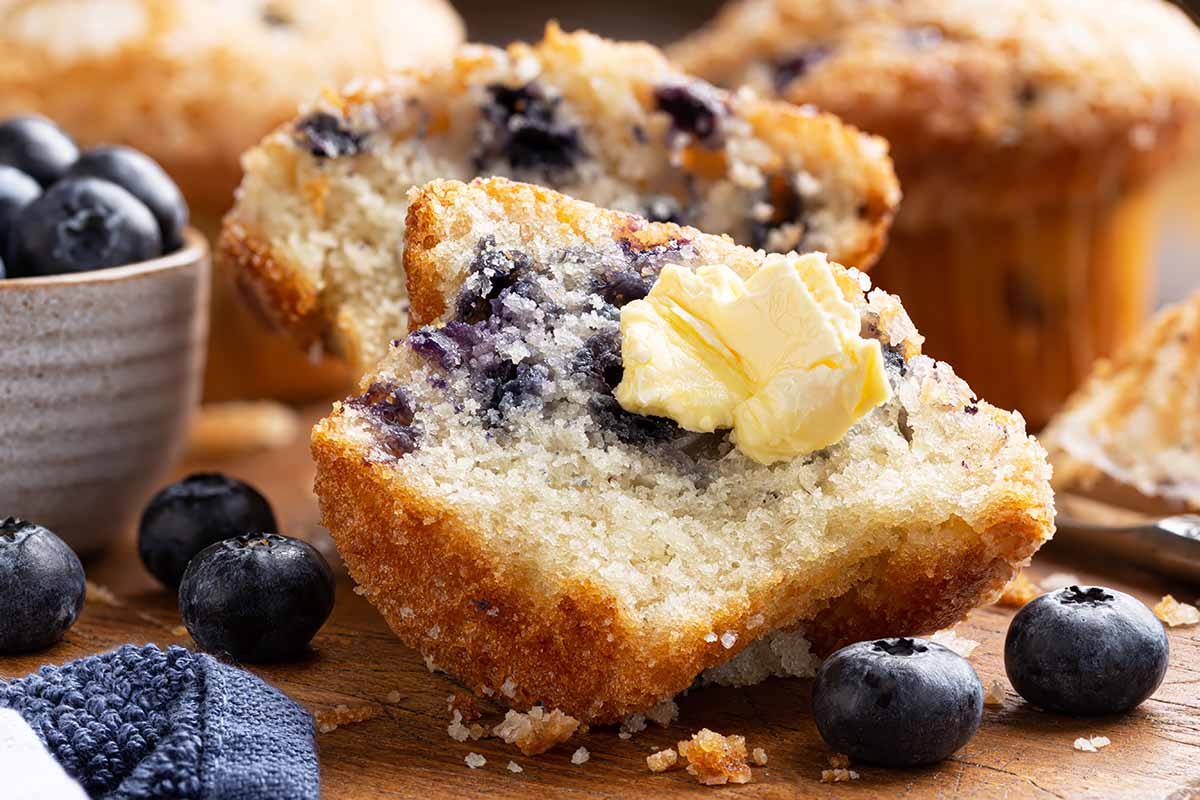
Thanks for the guidelines! I agree that cooking new dishes are challenging yet makes me excite on the output. Whenever I am going to cook a new one, I usually get online and watch the step-by-step procedure and I can say that it helps a lot. Fortunately, by just watching the videos I am able to prepare the dishes well. Other than this, I would also wanna try the other tips as I am pretty sure that they will be effective methods.
Great tips! It’s no surprise that kitchen success beings with planning. One thing I always try to do is set out all of the ingredients before hand. I’ve had several instances where I forgot to do this and then realized I was missing an ingredient in the middle of cooking. Talk about added stress! My favorite is the last tip. It’s great to have a friend to ask questions to and share the end result with. Friends make everything better.
“Copy it over” is one that I always find myself forgetting and always is the most important step! It’s easy to read it and think “sure, why not?” but difficult while you’re in the midst of it to be caught off guard by something you’re not ready for. Good tips!
Awesome tips for the trying out perfectionist and then i fall out flat with a messy kitchen table and an exasperated sigh!…glad for the site foodal.com to hold me by the hand and guide me through, even through the most daunting of tasks in the kitchen area… i shall not be in want or woe 🙂
I have often felt overwhelmed when I try out new recipes. I always think I’m organized beforehand, but on reading your tips, I can see that I should do a lot more before I start, if I am to be successful. Making sure the kitchen is tidy and free of clutter is something I always do before I start, but some of the other tips I never even thought of. Copying the recipe out longhand is an excellent tip that I will be trying next time.
I also like the idea of inviting a friend to help you try a new recipe – that sounds like fun, and an extra pair of hands to help with chopping etc.
Thank you for sharing this insight.
My Mother always tells me that when cooking “a good cook is a clean cook”. I agree that a clean kitchen before a recipe is started is very important, for not to include the wrong ingredients. I am grateful for the techniques because I usually am very nervous when I start a new recipe.
These are great tips! I am like Kael above. I get nervous when trying a new recipe. The one thing here I don’t do is to copy the address over. I really need to try that. I learn by writing things down so I think it would definitely make me more accurate when I cook or bake. I love your blog!
Thank you for these suggestions, I have to admit I remember some recipes that have gone very wrong, luckily in those circumstances I didn’t let anyone down, I was just experimenting on my own.
As a rule, I never cook a new recipe for a house party or celebration, I wouldn’t want to ruin everything, there’s too much pressure on! I do remember the times of University when about 6 of us would all cook one meal together and then enjoy it all over a bottle of wine, oh those were good times.
Good tricks! It seems like my mom had a good idea when she was going to the library to copy down recipes from magazines that inspired her!
My trick is to always look up different versions of a new recipe. It gives me a better idea of what absolutely is essential or non-negotiable for taste or cooking time, and what can be adjusted flexibly. Also, I then can see a variety of “secret” ingredients and then, after copying down the most interesting points of the recipes I’ve browsed through, I feel more secure to start my own and to give it a personal twist, right from the first try!
That’s awesome information! It’s always best to have a back up plan in case things go wrong in the kitchen, but breaking things down like this makes me feel much more confident about trying new dishes – thanks!
All the tips are great! The best tip for me will have to be number one. For a newbie cook like me, I sometimes get intimidated when trying out a new recipe. But one of the things that truly help me focus is to first clean the kitchen. I find that there is ease in movement when I do the cleaning first before I start cooking. Copying the recipe also helps one recall the recipe better.
Lynne, you always have the best tips to share. It’s one of my favorite things about this site. Such great things to keep in mind, to make life in the kitchen easier, and to make recipes turn out better.
I do try to get everything that I will need out ahead of time. This one is huge. It helps me stay better organized, but your other tips really help too. I don’t know why I never thought to plan my space. It makes perfect sense. Things should immediately begin to get smoother with this one simple step.
You guys rock.
I think that planning your space is just one of those things that we all do naturally, but if we take that extra effort and focus a little more, the benefits are there to be realized. When you consider all the stress that you will be having, too, with the uncertainty and nerves, it would really help to have a little more formal plan on hand. I know that I am going to have to keep this in mind.
I am personally more of a baking person than a cooking person because I always mess it up or add the wrong spices or SOMETHING happens that makes me aggravated. But with all of these tips, I think that I can slowly start learning how to cook.
There’s two tips that really stood out to me. One of them was “Plan your time”. I think this one is really important because I’m always shorting myself on time when I cook. I can never get the dish done fast enough but I think that making a time table will really help me out. The other one was “Brainstorm a backup plan”. I never though about turning something I ruined into a completely different dish. This one is a great idea that I will definitely be able to apply in the kitchen!
Thanks for the tips, Lynn. I can’t wait to use them!
you addressed one of my major problems, I like what you said about cleaning the kitchen and all beforehand. Eliminating distraction and the things that cause us stress is a good start and makes you stay focused and motivated
Although, I make a new recipe every day pretty much, these are some good tips. I definitely need to remember to get my kitchen cleaned and organized before trying to cook. That is the one thing that always slows me down and makes me frustrated. Other than my lazy cleaning routine, I love to take the time to try new recipes and hardly ever repeat a meal. It can take longer and you need to double check that you understand the recipe and have all the tools and ingredients together, but, to me, it’s worth it. It’s fun to always be trying new dishes. By cooking so many different things all the time, you can find the best tasting recipe for a particular dish after trying every other recipe for it that’s out there. Then you really know you have the best recipes around, at least to your pallet.
Thank you for the tips! I haven’t tried a lot of new things in the recent months, mainly due to a busy schedule but I also was scared of failure. 😛 I have to admit, having a backup plan in case something goes wrong takes a lot of stress out.
I tend to stress myself out when trying out new recipes, especially when I am having guests over, so I really appreciated all of the great tips in this article. I think it is definitely a good idea to start with a clean and organized kitchen. There is nothing worse than seeing more and more clutter and dishes piling up as you are trying to cook.
If I had known these tips when I was younger, I could have saved myself a lot of frustration (and laughable results).
I was never one to read directions thoroughly before just jumping in. It makes a huge difference, so writing it all out by hand is sage advice. That will help me not only to be aware but also to remember better.
Laying everything out is still one of the best things to keep in mind, in my opinion. It also helps you avoid a run to the store right in the middle of cooking…I’ve found myself short on ingredients that I was just *sure* I had plenty of on hand. When you get them out first, you can really be sure.
This is SO useful. I’ve always loved cooking, but making complicated recipes is really overwhelming. I’m gonna follow these guidelines and make a really interesting recipe tonight with one of my girlfriends! You’ve inspired me, lol. I love the ‘convince your friends it’s caramelized, not burnt’ bit too. We’ve gotta do what we’ve gotta do 🙂
Now, to decide what to make…